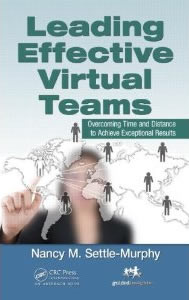Most people I know who work remotely wouldn’t have it any other way. The commute is great, work hours are flexible, they have fewer interruptions and more privacy, they can listen to their own playlist music anytime they want, and the dress code is pretty lax, just to name a few reasons.
But working remotely, whether in a satellite office, a shared public workspace or in your own home, can have its downsides. Many remote employees end up working more hours, blurring the line between work and “real life.” Some report feeling lonely, isolated, left out of important conversations and excluded from plum projects. In fact, the #1 complaint I hear from my virtual team clients is that when it comes to promotions and career advancement, out of sight really is out of mind.
In this edition of Communique, I offer tips for remote employees who want to increase their personal influence and get noticed by those who can help power their career growth. It takes considerably more time and effort to discover and connect with the right resources when you work remotely — more detective work, emails, phone calls, and sometimes, calling in favors — but the opportunities for advancement will be far greater as a result. (Note: I was inspired to write this article as a result of recent conversations with students in my Virtual Team Leadership classes, as well as Rebecca Knight’s excellent article in Harvard Business Review, “How to Increase Your Influence at Work.” )
- Forge connections. It’s a lot easier to make meaningful connections in 1:1 calls, video chats or in face-to-face meetings, versus in large group meetings. Reach out to schedule time with someone you want to connect with. Before you speak, research her background. Ask colleagues who know her. Check out her LinkedIn or other social media profiles. Do a Google search for articles or blogs she’s written, presentations given or places she’s worked. Find something you are curious about or have in common, and mention it early on. (“I noticed you once lived in Philadelphia, too. It’s changed so much over the last 20 years!” Or, “My colleague used to work at BCG, too. She raved about the culture.”) Establishing a personal connection makes us more likeable. And the more people like us, the more they’ll remember us, and are likely to go out of their way to help us sometime down the road.
- Start with a plan and create a map that can take you there. For example, if your goal is to land an overseas assignment where you can establish yourself as an expert in a given domain, start by asking expats you know what they did to land that overseas gig. What steps can you take to position yourself to be considered? For example, if you have any eye for a particular region or country, invest time in understanding the culture, either on your own or through formal training. Try picking up a new language, or brushing up on your high school-level French. Build your global leadership skills back at home by volunteering to lead a complex global program that can be transported to other countries. Find out who the decision-makers and influencers are when it comes to assigning internal positions, and find ways to make a connection. Ask for help from your colleagues who may be able to connect you to the right people and sing your praises for your excellent work. Finding the people who can help you move your plan forward can take a lot more research, emails and calls, especially when you have few opportunities to get in front of people face to face.
- Learn how to engage people in remote conversations, whether via phone, video chat, or a virtual meeting. Be ready to make insightful statements that reflect the homework you’ve done to prepare for the meeting. Ask great questions that make people stop and think. Listen actively, demonstrating authentic interest and curiosity about what they have to say. Consider in advance what the ideal next steps would be after the conversation is over, and have a plan to continue the conversation. (Example: “Luke, I’d love to reconnect at the end of the month so I can share what I have discovered about X. I’ll send a meeting request after this call.” Or, “Jen, can we arrange a sit-down meeting next time I’m in NY? I’ll send you my schedule when I have it.”
- Offer something of value with every interaction, whether it’s a conversation or an email. For example you might ask Lori to sit in one of her meetings and then offer to discuss your observations afterwards. Or you can offer to send Ian a few ideas that could help with that proposal he’s struggling with. When sending emails, try to include at least one idea, article or link that might be useful, with a brief explanation as to its relevance. (Example: “Joanna, I remember our conversation about the homelessness in Seattle. Here’s an article about how Portland is increasing the supply of affordable housing.” Or “Hope, you had said you were looking for a great book on time management. Here’s one I loved, and here’s why . . .”)
- Establish yourself as an expert. Find a hot topic that everyone seems to want to know about, especially where there are no obvious experts in your organization. Learn everything you can by reading books, blogs, articles or journals. Access videos, webinars, seminars or conferences on the topic. Interview authors, practitioners, professors or other experts. Unearth resources that others can learn from. Write blogs, wikis, articles, etc., for posting both inside and outside your organization. Volunteer as a speaker or presenter, starting within your own organization. Host a virtual brown bag luncheon or breakfast briefing. Ask your manager to sponsor you as a presenter for other teams or for external events. In short, make yourself the go-to person that everyone wants to learn from.
- Take advantage of opportunities to shine. Be proactive about taking on assignments outside of your comfort zone. Look for projects where you’ll make new connections outside of your own team or function, especially those where you can pick up new skills or cultivate knowledge about a whole new area. Volunteer to tackle some of those thorny challenges that no one else wants to touch.
- Always be true to yourself. In his seminal book, How to Win Friends and Influence People (written in 1935 and still a best-seller), Dale Carnegie cautions readers: “Remember, we all crave appreciation and recognition, and will do almost anything to get it. But no one wants insincerity.” Don’t be afraid to seek out opportunities to meet those who can help do your own job better or advance your career growth. For remote workers, it requires a special kind of ingenuity and resourcefulness to make the right connections in a world where they may feel largely invisible. Remember that as long as your curiosity about people, projects and topics is genuine, people will respond in kind.
Links
Check out our virtual and onsite customized training and coaching to help people design and lead more engaging virtual meetings and to navigate through cultural differences
How to Increase Your Influence at Work by Rebecca Knight, Harvard Business Review
How to Win Friend and Influence People by Dale Carnegie
Quick Tips for Keeping People Engaged, Virtually — free downloadable tips guide in PDF form from Guided Insights, an excerpt from our tips guide, 107 Tips for Planning and Leading Exceptional Virtual Meetings, available for purchase on our website
Past Communiques:
Fire Up Your Communications Mojo in a Virtual World
8 Essential Steps for Faster, More Engaging Virtual Meetings




